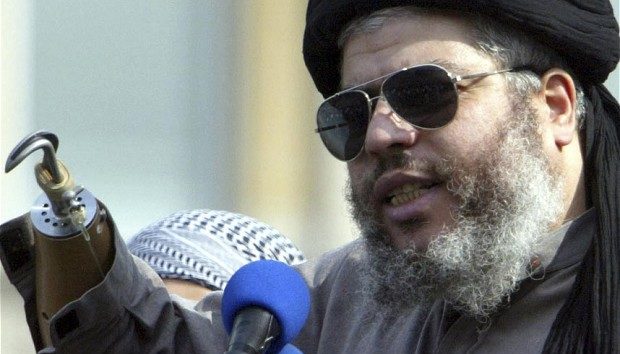IN FOCUS: The Conviction of Abu Hamza by Douglas Murray
Pictured: Abu Hamza al-Masri
The conviction of Abu Hamza in a US court brings one of Britain’s most embarrassing security problems to an end. Likely to spend the rest of his life in a US prison, the fact that the British courts could not do the job the American courts have just done is a subject worth pausing over for a moment.
There are two reasons generally given as to why Hamza was allowed to get away with years of open incitement. The first – claimed by many inside the intelligence and security establishment – is that during the 1990s and up until the post-9/11 terrorism acts, the laws were not in place to round up people like Hamza. Like Omar Bakri and Anjem Choudary, Hamza knew exactly where the law stood and tended to keep just inside of it. During this period the legislation for crimes of incitement and facilitation of terrorism were not as strong as they have since been made.
The other reason given – generally by people outside the security community – is that there was some kind of deal done. This idea came up during Hamza’s US trial. This alleged deal is that, so long as radicals like Hamza did not blow up things in the UK, the security services and police would not take an interest in their involvement in terrorist operations abroad (such as the attacks in Yemen which Hamza and his family were involved in).
Whichever of these explanations is true – and it is most likely that both partly are – they point to the most catastrophic and short-sighted security policy of the last generation. The idea that it was ever in our security interests, let alone our moral interests, to become some kind of Argentina for global jihad, must be one of the most back-firing policies any political or security official has ever conjured. And yet of course, despite looking back with incredulity at the period in which Hamza & Co. ran riot in the 1990s, are we actually any better today? I would say not. In a house in East London right now sits one of the militant heads of the designated terrorist group Hamas. I think it can be said with some certainty that in another ten years we will look back at this situation too, smack our heads again, and say ‘What were we thinking?’
 ABOUT DOUGLAS MURRAY
ABOUT DOUGLAS MURRAY
Douglas Murray is an Associate Director at The Henry Jackson Society. Follow Douglas on Twitter @DouglasKMurray.


